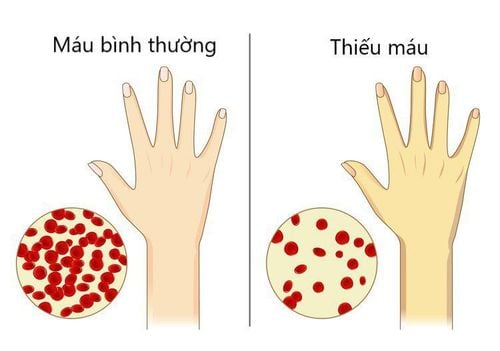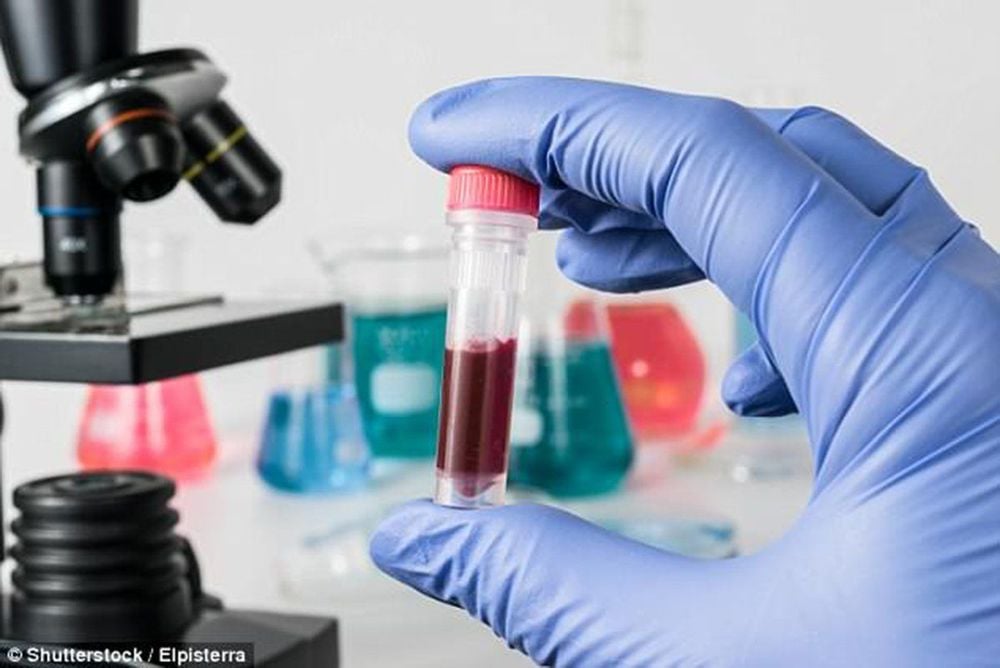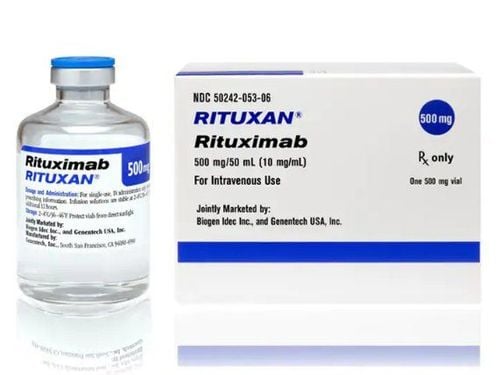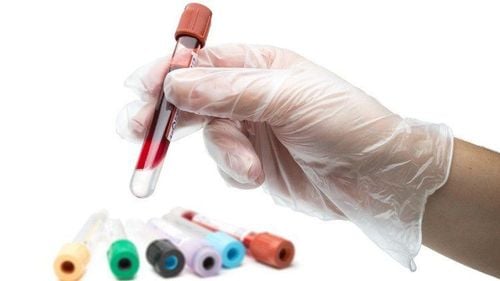This is an automatically translated article.
Anemia is a common hematologic abnormality found in the setting of rheumatoid arthritis. Any rheumatoid arthritis patient should be monitored for symptoms of anemia to discuss with their doctor. Early detection and treatment of rheumatoid arthritis anemia helps to improve the patient's health and limit the occurrence of many other serious complications.
1. What is rheumatoid arthritis?
Rheumatoid arthritis is an autoimmune disease that affects the joints and many other organs in the body. In patients with rheumatoid arthritis, the body's immune system has an error in recognizing normal tissues as foreign, harmful agents. This causes components of the immune system to attack and destroy the tissue lining the inside of the joint. The clinical symptoms that the patient has to face are swelling, pain and stiffness of the joints. Similarly, aberrations in the functioning of the immune system also cause inflammation and damage to other organs such as the heart, lungs, blood vessels and eyes.
2. What is anemia?

Thiếu máu
3. Why does rheumatoid arthritis cause anemia?
Rheumatoid arthritis is associated with many different forms of anemia, including chronic inflammatory anemia and iron deficiency anemia, collectively known as rheumatoid arthritis anemia.
When the disease is in the active stage, the attack of the immune system causes inflammation in the joints and many other organs in the body. Chronic inflammation can reduce the production of red blood cells in the bone marrow. This leads to an increased release of proteins involved in the body's use of iron.
Inflammation also affects the production of erythropoietin by the kidneys and liver, a hormone that controls red blood cell production.
Rheumatoid arthritis anemia can also be an undesirable effect of the use of rheumatoid arthritis medications. Nonsteroidal anti-inflammatory drugs (NSAIDs) such as ibuprofen, naproxen, and meloxicam are effective in reducing pain, which can cause bleeding and inflammatory ulcers in the stomach and other sites in the digestive tract. If the rheumatoid arthritis patient has severe anemia, a blood transfusion may be indicated, which improves the red blood cell count as well as the iron content in the body. NSAIDs can also destroy the liver parenchyma, where iron from food is stored and released into the circulation when needed. The DMARDs that help slow the progression of rheumatoid arthritis also affect the liver and cause anemia. Patients with rheumatoid arthritis anemia will be asked to have their blood drawn as a routine test for testing and evaluation.
4. Diagnosis of rheumatoid arthritis anemia

Xét nghiệm máu để chuẩn đoán thiếu máu viêm khớp dạng thấp
To begin diagnosing rheumatoid arthritis anemia, the doctor will dig up information regarding the patient's medical history and their symptoms. Mild anemia will not cause any clinical symptoms. However, if the number of red blood cells is significantly reduced and affects the ability to transport oxygen in the body, the patient will have symptoms such as changes in heart rate, dizziness, fatigue, hair loss, headache, and fatigue. shortness of breath . It is easy for patients with rheumatoid arthritis to miss their anemia because the symptoms of anemia overlap with the existing symptoms of arthritis.
If anemia is suspected, the doctor will order further tests to diagnose and evaluate the degree of anemia. The complete blood count test is the most basic means of detecting low levels of hemoglobin in the blood to diagnose anemia. Several other tests are also ordered to look for the cause of anemia, including serum iron, ferritin, folic acid, and vitamin B12 levels. Combining information from these tests can help doctors understand the cause of anemia in a patient, as well as classify the anemia.
5. Rheumatoid arthritis anemia treatment

Cần bổ sung các viên uống chứa sắt để điều trị thiếu máu viêm khớp dạng thấp
Treatment options for rheumatoid arthritis anemia depend on the underlying cause. The most specific treatment for rheumatoid arthritis anemia is to continue with good rheumatoid arthritis treatment to reduce inflammation inside the patient's body, the main cause of anemia. DMARDs can reduce the inflammatory response in the body, helping to improve the symptoms of anemia.
Patients with laboratory-detected iron deficiency anemia should be given iron supplements or iron infusions, however too much iron can cause serious health problems. With megaloblastic anemia, folic acid and vitamin B12 supplementation is the appropriate treatment option.
Erythropoietin (EPO) can be used to stimulate the bone marrow to produce more red blood cells in the blood. In 2013, researchers looked at three clinical trials that gave EPO to anemic rheumatoid arthritis patients. The results showed that the injection of EPO increased hemoglobin levels in 2 of the 3 trials mentioned above. However, these trials were conducted on a small scale and there is a lack of information on safety.
Treatment of anemia in patients with rheumatoid arthritis should be done as soon as possible. The lack of oxygen in the blood causes the heart to work harder to pump blood around the body. Untreated anemia can lead to arrhythmias, heart failure, or worse, a heart attack.
Vinmec International General Hospital is the address for examination, treatment and prevention of diseases, including examination and treatment of autoimmune diseases, musculoskeletal diseases, etc. At Vinmec, customers will be welcomed and used facilities, modern machinery system accompanied by perfect medical services under the guidance and advice of well-trained doctors. professionally created both at home and abroad.
Customers can directly go to Vinmec Health system nationwide to visit or contact the hotline here for support.













